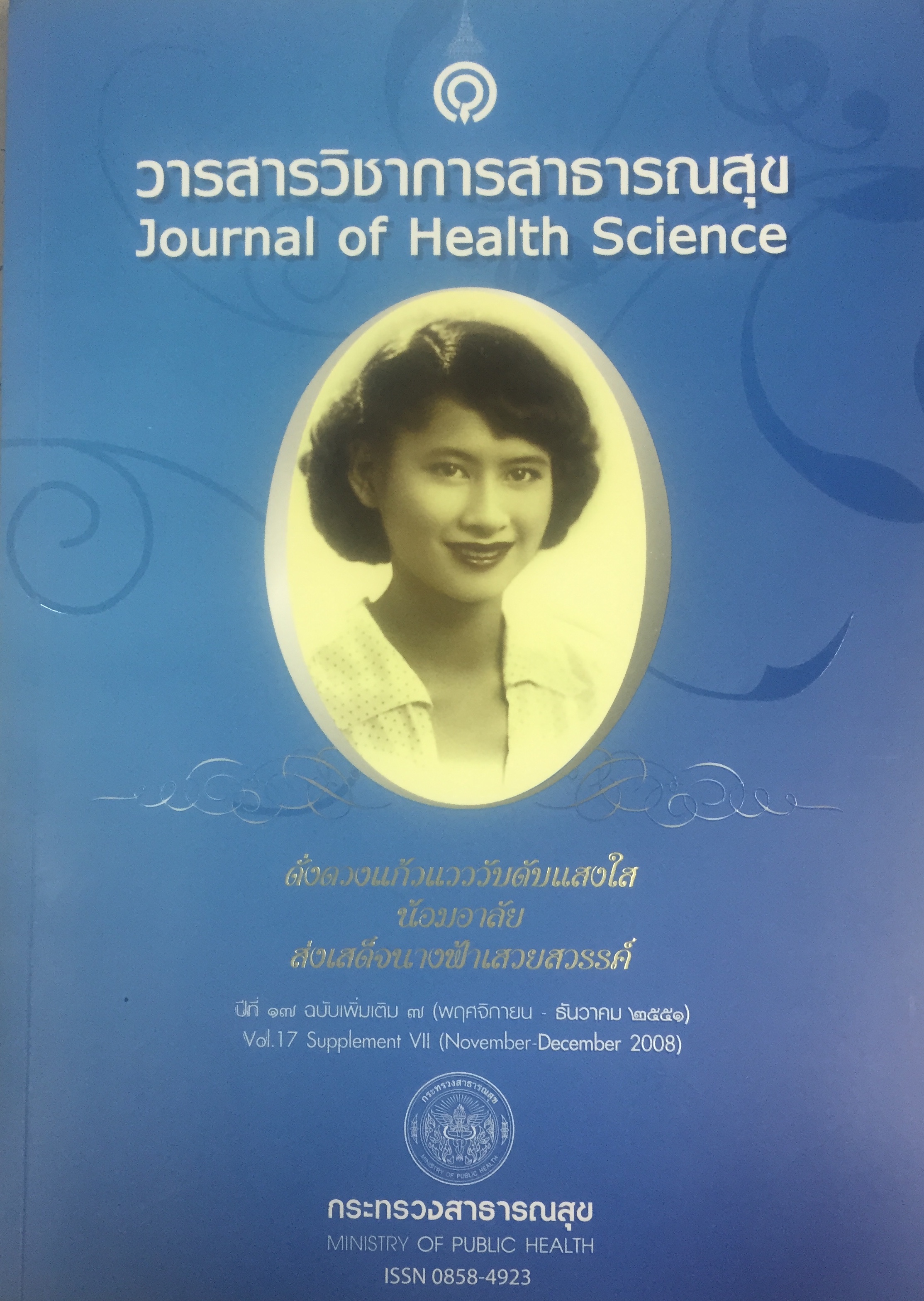Model Development of Community Avian Influenza Surveillance
Keywords:
model development, disease surveillance model, Avian Influenza, empowermentAbstract
Avian Influenza is a disease which has tremendous effect on health and economy of the country. Relevant agencies have been seeking for suitable measures for controlling and preventing a potential pandemic. The objectives of this research were 1) to develop community avian influenza surveillance system, 2) to compare communication skill and leadership skill of the community leaders before and after the empowerment, and 3) to compare knowledge, perception and operation on the prevention of avian influenza of the people before and after the empowerment in Botong Subdistrict, Chon Buri Province. The two target groups of samples for this quasi - experimental with one group pretest - posttest design were 35 community leaders from 7 villages, and 446 family representatives. Two types of research instruments were used. They were 1) the operation instrument which consisted of empowerment curriculum and guide for the prevention of avian influenza for the people, and; 2) the questionnaire testing communication skill and leadership skill of the community leaders and questionnaire testing knowledge, skill and operation on the prevention of Avian Influenza for the people. Descriptive statistics were used for general data and paired t-test was used to make the comparisons before and after the empowerment of the same group.
The research revealed that of the 35 community leaders, the majority was female aged 40-59 years old (48.6%). 54.4 percent were in agriculture while 51.4 percent had monthly income more than 20,000 baht. Regarding 446 family representatives, the majority was female (55.8%). The average age was 41.5 years old while 39.1 percent were in agriculture and 48.1 percent had monthly income less than 5,000 baht. After the empowerment, community leaders had developed community avian influenza surveillance system which operated through a committee to be ready for prevention of a pandemic by publicizing to the community and establishing a regular news and information announcement schedule in the community. Concerning the empowerment of community leaders and family representatives, results showed that communication skill and leadership skill of community leaders were significantly higher after the empowerment, p<0.01. Knowledge, perception of the severity of the disease, benefits of following the prevention guidance and performance for the prevention of avian influenza of family representatives were also significantly higher after the empowerment, p<0.01.
This research suggests that the government should seriously encourage the model development by the people sector and business sector by focusing on empowerment of stakeholders to have better knowledge and skills together with the development of their leadership skill.
Downloads
Downloads
Published
How to Cite
Issue
Section
License
Copyright (c) 2018 Journal of Health Science

This work is licensed under a Creative Commons Attribution-NonCommercial-NoDerivatives 4.0 International License.







